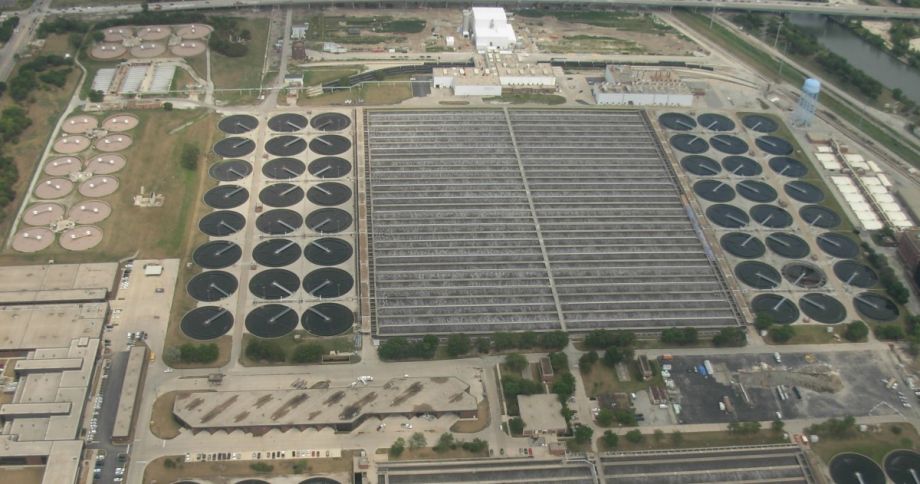When it comes to managing city sewage, Chicago is hoping to redefine the word waste.
The Metropolitan Water Reclamation District of Greater Chicago’s new five-year strategic plan expands on the work the agency has been doing on everything from flood mitigation to infrastructure maintenance, and focuses on making wastewater management more productive.
“The vision statement is ‘Recovering Resources, Transforming Water.’ There are four resources the District is targeting in the plan,” David St. Pierre, executive director, says. The four resources are phosphorus, class A biosolids, energy and water. “These four valuable resources are our current recoverable targets. We anticipate algae coming into view in the near future.”
In essence, the District aims to “harvest” useful nutrients (or, “resources”) during wastewater processing — and put them to good use.
The District is building the largest phosphorus recovery facility in the world at the Stickney Water Reclamation Plant, which will be ready to go by this September.
Nutrients, such as phosphorus, are otherwise discarded during treatment. Instead St. Pierre says the new approach will recover tons of eco-friendly fertilizer. A Vancouver-based company called Ostara has partnered with the District, and according to its website, what comes out is “a high-grade, slow-release end-product that Ostara harvests, dries, packages and markets as a commercial fertilizer.”
“This technology will transform these nutrients into an environmentally responsible fertilizer,” St. Pierre said in a press release when the plant was first announced. “It will recover a nonrenewable resource, improve our water environment and provide a return on investment for our ratepayers. It is definitely a win-win-win.”
Some other plants use this technology, but St. Pierre says that Chicago’s will be the biggest. All of this, he says, is moving Chicago in the direction of a zero waste model. “Chicago is adopting the view that all resources are valuable and should be reused,” St. Pierre says. “We are trying to create a paradigm where the word ‘waste’ is retired from the common vocabulary.”
Facing the effects of climate change, such as flooding and rising sea levels, many cities are looking for ways to revamp with resilient infrastructure. While Chicago might not come to mind as easily as the likes of New York, the Midwest city is in preparation mode. As WBEZ reported last year, Chicago could even be a future refuge:
As University of Chicago Law Professor David Weisbach said, however, the Chicago area might be well-positioned to handle newcomers and other unforeseen impacts.
“We have a temperate environment. We have a highly diversified economy — it’s not dependent on any one sector. We have a stable fresh water supply,” Weisbach said. “If you think about what the effects of climate change will be in Chicago, it’s going to be the knock-on effects. We’re connected to the rest of the world, and what matters to the rest of the world matters to us. That will affect us potentially very, very deeply.”
The Works is made possible with the support of the Surdna Foundation.
Jenn Stanley is a freelance journalist, essayist and independent producer living in Chicago. She has an M.S. from the Medill School of Journalism at Northwestern University.
Follow Jenn .(JavaScript must be enabled to view this email address)
















